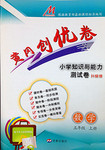题目内容
A technology company is developing a lie detector app for smartphones that could be used by parents, teachers—and even Internet daters.
The app measures blood flow in the face to assess whether or not you are telling the truth. Its developers say that it could be used for daters wanting to see if somebody really is interested in them. Parents could use it on their children to see if they are lying and teachers could work out which of their pupils are honest.
The app is being developed by Toronto startup NuraLogix and the software is called Transdermal Optical Imaging. The idea is that different human emotions create different facial blood flow patterns that we have no control over. These patterns change if we are telling the truth or telling a lie.
Using the footage(拍摄的片段) from the smartphone camera, the software will see the changes in skin colors and compare them to standardized results. A study found last year found that anger was associated with more blood flow and redness while sadness was associated with less of both.
Developmental neuroscientist(神经病学家)Kang Lee, who has been researching the field for 20 years, said, “It could be very useful, for example, for teachers. A lot of our students have math anxiety but they do not want to tell us, because that’s embarrassing.” Lee added that the technology would not replace lie detectors used in a court of law. He said: “They want the accuracy to be extremely high, like genetic tests, so a one-in-a-million error rate. Our technique won’t be able to achieve an extremely high accuracy level, so because of that I don’t think it’s useful for the courts.” He added that it will be a few years before the app is available to consumers.
1.How does the app work to identify whether the person is lying or not?
A. By controlling the blood flow patterns in our face when people are speaking
B. By measuring blood flow patterns and comparing changes in skin colors
C. By taking footage to replace lie detectors used in a court of law
D. By creating different facial blood flow patterns people needed
2.Why Transdermal Optical Imaging cannot be applied in courts at present?
A. It is too complicated to standardize results in courts
B. It hasn’t reached the required accuracy yet
C. Genetic tests are enough for situations like this
D. Its use is forbidden by law
3.What can be inferred from Kang Lee’s remarks in the last paragraph?
A. Students with math anxiety rarely ashamed of themselves
B. Lie detectors and Transdermal Optical Imaging are of the same function
C. The result of genetic tests is far more accurate than that of Transdermal Optical Imaging
D. Consumers will be able to download the app in the near future
 名校联盟快乐课堂系列答案
名校联盟快乐课堂系列答案 黄冈创优卷系列答案
黄冈创优卷系列答案

 destroy all those things. Will we use our words to hurt or to heal? The choice is ours.
destroy all those things. Will we use our words to hurt or to heal? The choice is ours.